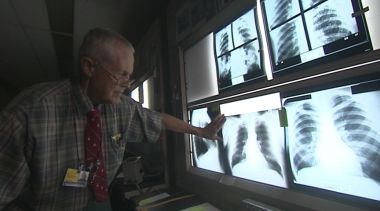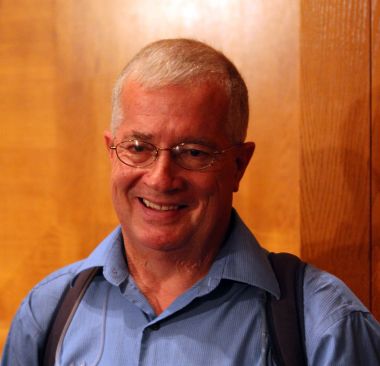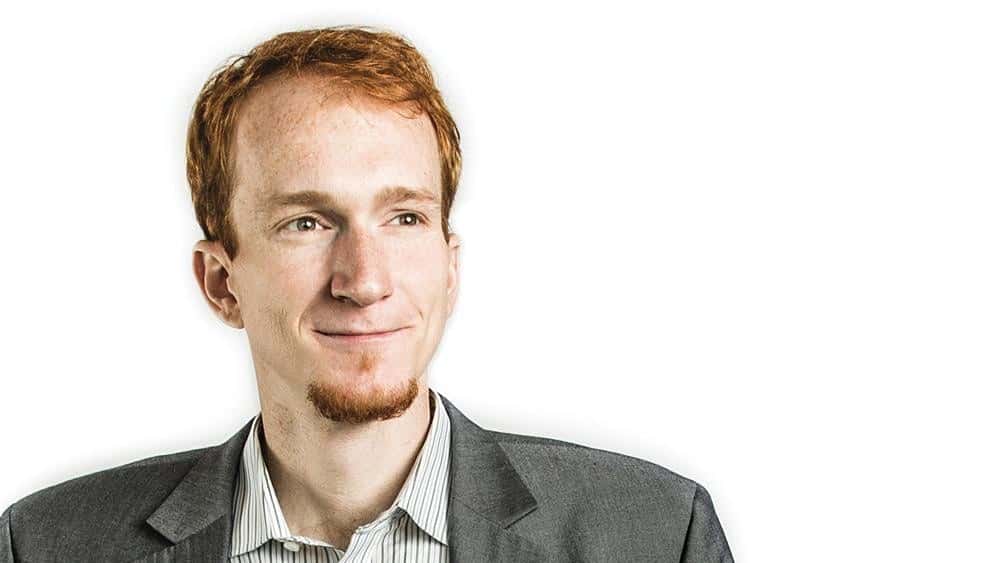Introduction

In an extraordinary rebuke to a doctor at one of America’s top hospitals, the U.S. Department of Labor has informed about 1,100 coal miners that their claims for black lung benefits may have been wrongly denied because of the actions of a powerful physician at the Johns Hopkins Medical Institutions, the department’s deputy secretary told senators Tuesday.
That doctor, Paul S. Wheeler, systematically found that miners did not have black lung when, in fact, many of them did. Medical opinions by the doctor should be assumed not to be credible, senators and affected miners were told.
The government’s outreach and the Senate hearing were both prompted by a series of stories released last year by The Center for Public Integrity in partnership with ABC News.
Miners who get black lung, a debilitating and incurable disease caused by breathing in coal dust, are entitled by federal law to compensation, often from their former employer. But the series, which was the result of a yearlong investigation, revealed two ways that coal companies undermined miners’ claims to benefits: Lawyers for coal companies withheld evidence that miners had the disease, and doctors consistently failed to diagnose black lung.
One installment detailed how Wheeler had read X-rays in more than 1,500 cases decided since 2000 without finding a single case of severe black lung, even as other doctors saw the disease in hundreds of cases and other evidence repeatedly proved him wrong.
The Senate subcommittee on Employment and Workplace Safety invited Wheeler or a representative from Johns Hopkins to testify at Tuesday’s hearing but was told no one would be available, a staff member for subcommittee chairman Sen. Robert Casey said.
A spokesperson for Johns Hopkins issued a statement to BuzzFeed: “Johns Hopkins commends the Subcommittee for its efforts to review the federal Black Lung Benefits Program to ensure the claims process is fair and just for all parties involved. At Johns Hopkins, we are taking this very seriously.”
Two days after the initial stories last fall, Johns Hopkins suspended the work of Wheeler’s unit. Referencing an internal investigation, the spokesperson said, “While our review is ongoing, nobody at Hopkins — including Dr. Wheeler — is performing black lung [X-ray readings].”
Casey announced that he would soon introduce legislation to strengthen the benefits program, developed with Sens. Jay Rockefeller and Joe Manchin, both of West Virginia, along with Sen. Tom Harkin of Iowa and U.S. Rep. George Miller of California. A bill might be ready before the August recess, a Casey staffer said.
“We often talk about how coal produces the cheapest energy in this country,” Harkin, whose father had black lung, said during the hearing. One reason, he said, is “because those who mine the coal have not been adequately compensated.”
The hearing featured testimony from top government labor officials, an insurance consultant, and miners from West Virginia battling the disease on a daily basis, including a retired miner on oxygen because of his severe disease.
The only testimony in support of coal companies came from the insurance industry consultant, who contended that many claims were being incorrectly awarded to miners whose health problems were attributable primarily to smoking.
Christopher Lu, the deputy secretary of the Labor Department, said that, in response to the CPI-ABC stories, “We conducted an extensive review of the program.” This led to a series of new initiatives.
Two major obstacles miners face: Coal companies have more resources to develop medical evidence, and miners often can’t find a lawyer willing to take a black lung case.
This February, the department began pilot programs intended to improve the quality of medical reports provided by government-paid doctors and to allow department lawyers to intervene in unrepresented miners’ cases.
In May, the department announced that it was developing a rule that would address the withholding of evidence by lawyers. Lu said this was motivated in part by the story of miner Gary Fox, who was featured in the CPI series.
Fox applied for benefits in 1999. A year earlier, doctors had seen a mass in his lungs and removed a piece to rule out cancer. The local pathologist did just that and made the vague diagnosis of “inflammatory pseudotumor.” Unknown to Fox, however, the prominent law firm Jackson Kelly PLLC had obtained slides of this tissue and had it analyzed by two pathologists who frequently supported their position in cases.
This time, though, both found the samples consistent with complicated black lung. The lawyers did not disclose these reports and instead led their other experts and the judge to rely on the report of the local pathologist. Fox lost his claim as a result, and he had to return to work, his health steadily deteriorating.
Only in 2007, when a lawyer experienced in black lung cases, John Cline, agreed to represent Fox, did he discover what Jackson Kelly had hidden. He finally won his claim, but died waiting on a lung transplant. An autopsy proved he had complicated black lung.
Jackson Kelly did not immediately respond to requests for comment.
Other witnesses focused on the role of doctors, particularly Wheeler. John Howard, the director of the National Institute for Occupational Safety and Health, said that Wheeler’s way of reading chest X-rays is wrong. The department has taken steps to ensure that doctors use an internationally recognized method of reading such X-rays.
Robert Briscoe, a senior consultant at the actuarial firm Milliman Inc., challenged many of the principles underlying Labor Department regulations. He said many miners were receiving benefits for breathing problems caused primarily by smoking. Both Howard and Dr. Jack Parker, the chief of pulmonary and critical care at the West Virginia University Health Sciences Center and a former top NIOSH official, countered Briscoe’s claims and noted a body of scientific literature supporting the government’s position.
“I never smoked,” retired miner Robert Bailey Jr. said. Sitting next to Briscoe, an oxygen tank lying beside him, Bailey described his roughly four-year fight for benefits after a 35-year career in the mines.

A doctor paid by the Labor Department examined him and determined he had complicated black lung, but he initially lost his claim after Wheeler interpreted an X-ray as negative for the disease. Bailey appealed and underwent a biopsy that showed he had black lung.
Though he has won his case, he said he is still battling his former employer over payment for a lung transplant. Bailey, 61, said he has been told by doctors he is a good candidate and is undergoing pre-transplant evaluations.
“Some days are better than others, but no day is a good day,” Bailey said of his breathing. Raising his gaze to the senators, he said, “I look to you all to help us.”
Chris Hamby, a former reporter with the Center for Public Integrity, now works for BuzzFeed.

Join the conversation
Show Comments